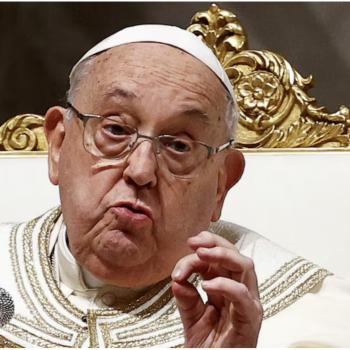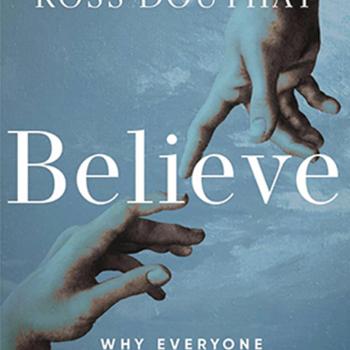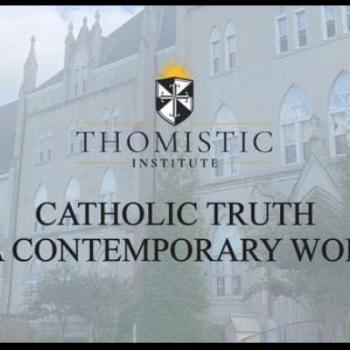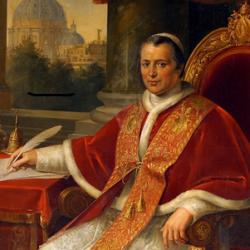Read it here at First Things. She writes:
What did Francis say? Well, at this writing, the official Vatican transcript is not available, but according to reports, the Pope endorsed the Catechism of the Catholic Church:
“A gay person who is seeking God, who is of good will—well, who am I to judge him? The Catechism of the Catholic Church explains this very well. It says one must not marginalize these persons, they must be integrated into society. The problem isn’t this [homosexual] orientation—we must be like brothers and sisters. The problem is something else, the problem is lobbying either for this orientation or a political lobby or a Masonic lobby.”
While it is true that, as newsman and Vaticanista John Thavis quickly noted, Francis’ remarks were not meant to be “specifically about gay priests,” secular headlines implied otherwise. His words, however, came in answer to a question about the so-called “gay lobby” within the Vatican and specifically concerning one of Francis’ own appointees, whose past had been raised by some as a cause for concern. To this, Francis replied…
What follows is my take on Pope Francis’s comments.
The Holy Father is a rhetorical genius here. For the media, “being gay” means celebrating one’s homosexual identity and living it out. That’s not what Francis means, especially given his strong opposition to state recognized same-sex marriage as well as his reference to the Church’s teachings in the Catechism. Replace “homosexual” or “gay” with any number of nouns that we employ to describe people who have certain inclinations and ask yourself if Francis’ comments cohere perfectly with what the Church teaches. Of course they do!
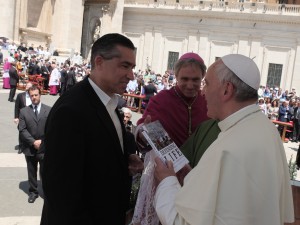
I think what Francis is doing is something I have suggested for quite some time: use the language of inclusion and openness to advance a countercultural, and distinctly Christian, understanding of the nature of the human person. In other words, speak the truth in love. (Wow, what a radical concept!) So, instead of saying that prolifers oppose abortion–which is the language our adversaries want us to speak–we say, with complete integrity and confidence, that we want a community that is open to all human persons regardless of their size, level of development, environment, or dependency. Instead of saying that we want to “ban gay marriage”–which is the language our adversaries want us to speak–we say, with complete integrity and confidence, that we believe in, and uphold, the dignity of all persons, including those with same-sex attraction, and that our understanding of that dignity is manifested in respecting the goods to which our sexual powers are ordered–real organic unity and the begetting and raising of children–which are best nurtured, protected, and advanced in the community’s recognition of the uniqueness and intrinsic good of the marriage of one man and one woman.
What Pope Francis articulated is Catholic moral theology. The fact that the media do not recognize it tells us a lot about them and very little about the Holy Father. Thus, the Pope, it turns out, is Catholic after all.



